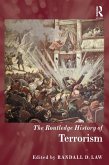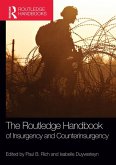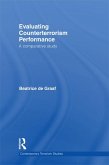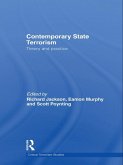With an introduction by the editor explaining the book's rationale and organization, as well as a guide to the definition of terrorism, an historiographical chapter analysing the historical approach to terrorism studies, and an eight-chapter section that explores critical themes in the history of terrorism, this book is essential reading for all those interested in the past, present, and future of terrorism.
Dieser Download kann aus rechtlichen Gründen nur mit Rechnungsadresse in A, B, BG, CY, CZ, D, DK, EW, E, FIN, F, GR, HR, H, IRL, I, LT, L, LR, M, NL, PL, P, R, S, SLO, SK ausgeliefert werden.









